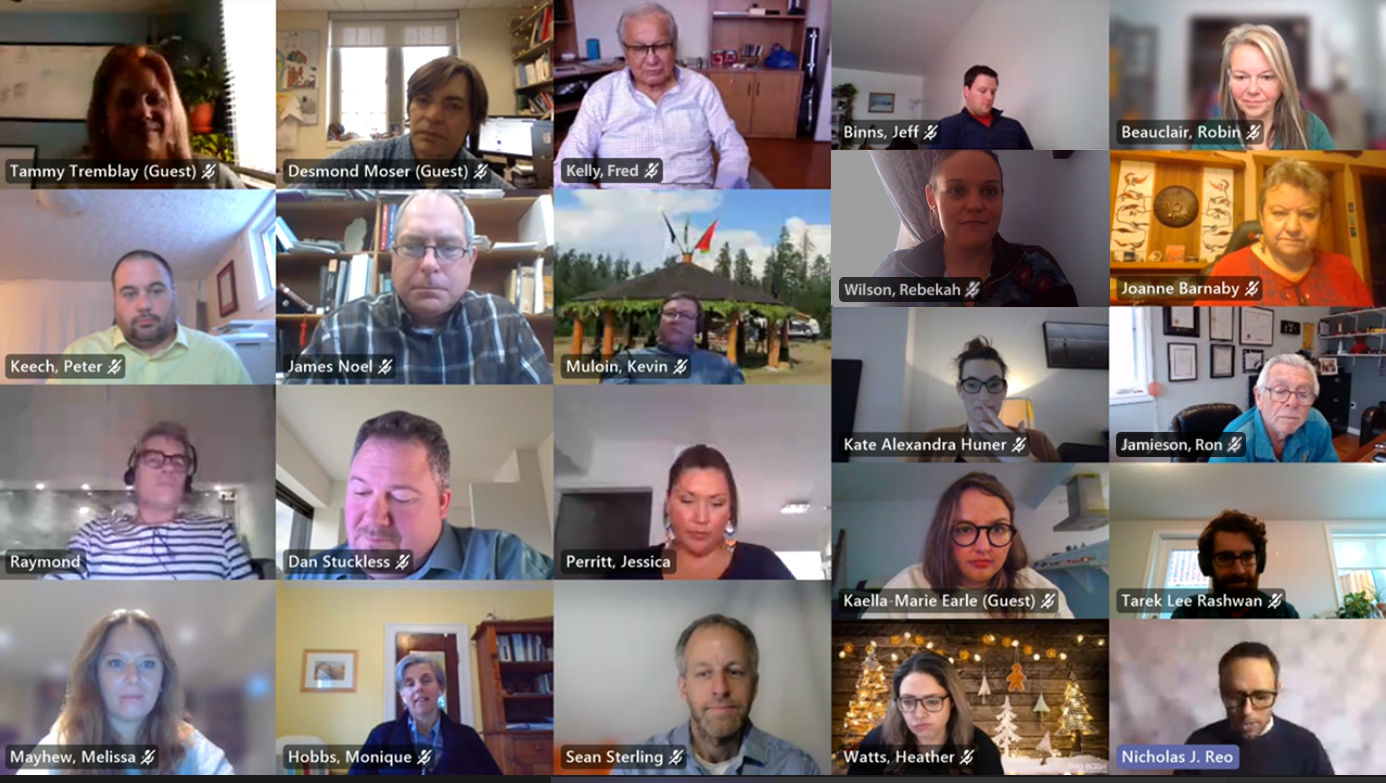For the third consecutive year, the Nuclear Waste Management Organization (NWMO) hosted its annual “Indigenous Knowledge and Western Science Workshop” in late 2020.
Building on the thoughtful dialogue of previous years, workshop topics were anchored in discussions on fundamental differences, interconnectedness, and interweaving worldviews to address the safe and secure storage of nuclear waste.
“The whole world is struggling through the existence of different world paradigms,” said Bob Watts, Vice-President of Indigenous Relations at the NWMO. “By creating a collaborative space for scientists and Indigenous Knowledge Keepers, we are truly leading from an industry perspective.”
Members of the Council of Elders and Youth participated, with Elder Fred Kelly opening and closing with an Indigenous ceremony for each day of the two-day workshops.
Dr. Michael Thrasher, an internationally recognized Elder, or as he prefers to be called Mooshum (Grandfather in Cree), shared learnings that had been passed on by oral tradition. He spoke about the importance of Indigenous worldviews, medicine circles, and “ways of knowing” as part of a relationship-building process.
“In our creation stories, Turtle Island was created when a big turtle emerged from the water to support the world. Our continent North America,” said Dr. Thrasher. “Kanata (Canada) has always meant a ‘clean place’ to Indigenous people. If we explore the depth of this meaning from an environmental perspective, then what does it mean to be Canadian?”
During a panel on Sharing Best Practices of Interweaving Indigenous Knowledge and Western Science, panelists discussed the importance of cultivating and tending to relationships.
Additional presentations included an Update on the NWMO’s Progress of Interweaving Indigenous Knowledge and Western Science and Sharing the Reconciliation Assessment Experience.
“Within our technical work, we are only beginning to uncover the different layers of relationships,” said Peter Keech, Manager of Engineered Barrier Science. “In expanding our thinking to engage more effectively with communities, we are also learning more about the relationships between different materials and the relationships those materials have with their own natural environments. By challenging ourselves in this way, I believe we will improve our project by seeking input from Indigenous Knowledge Keepers.”
In 2021, collaborative work will continue on a national and international basis to make space for bringing together scientists and Indigenous Knowledge Keepers to address the safe and secure containment of Canada’s used nuclear fuel over the long-term.
Established in 2002 by Canada’s Nuclear Fuel Waste Act, the NWMO operates on a not-for-profit basis and is responsible for Canada’s plan to safely manage used nuclear fuel in a way that protects people and the environment.

